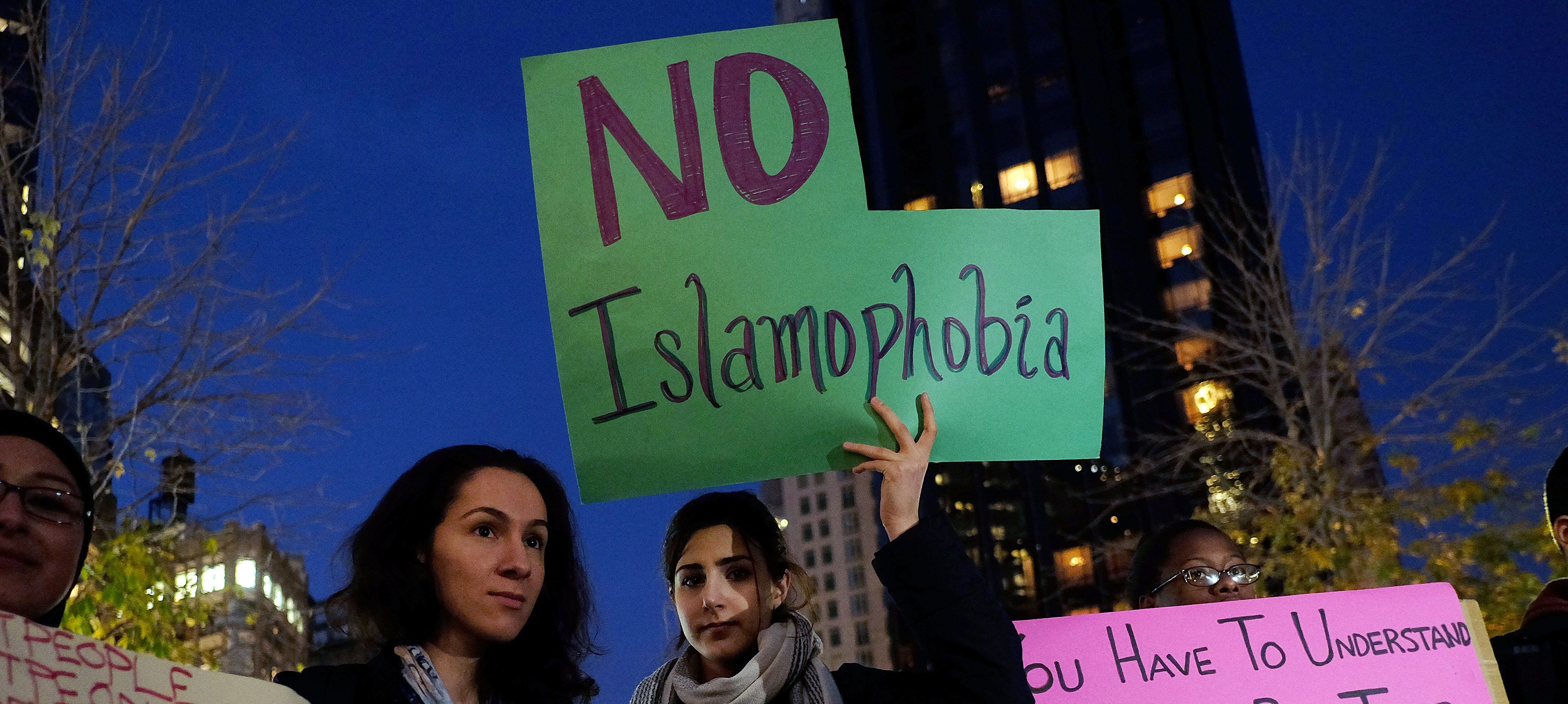
To be a Muslim in America right now is to fear that your best days — your most ordinary days — are behind you. Anti-Muslim hate and fear-mongering is going mainstream, and the future is a startling unknown.
Many fear that the vicious rhetoric we are hearing is a harbinger of things to come: discrimination, harassment and violent attacks on Muslims, or people who look Muslim that spreads and even becomes a new normal. That could set the stage, one day in the not-so-distant future, for government policies like mandatory registration of Muslims and internment.
Could that really happen? Perhaps my background as an American Muslim makes me more sensitive to the possibility.
When I was growing up, pre-9/11, I felt the invisible minority. My struggle with identity, my sense of in-betweeness, was not reflected in any TV show or book that I knew of. Now, there are far more representations of Muslims on TV. But Muslims are nearly always depicted as threatening. The post-9/11 genre of national security thriller builds suspense around the possibility that even the Good Muslim may turn into a violent one.
But as many have pointed out, Muslims are not just these individual characters, they are an existential menace referenced over and over again on the news and in politics. They are the latest in a long line of “foreigners” in the American imagination. Muslim men are among the brutes, in black and brown skin, whose appearance of civility hardly contains their capacity for violence and duplicity.
How did this happen? As Moustafa Bayoumi puts it in his new book This Muslim American Life:
“Absent ordinary personal contact, most Americans will get their views of Islam through television, cable news, talk radio, the Internet, and really bad action movies…Muslims themselves are often rendered mute or suspect.”
In this context, I am increasingly conscious that I don’t “look” Muslim because I don’t wear a headscarf. But instead of breaking the Dangerous Muslim stereotype, I wonder if outing myself as Muslim merely feeds the fear of a camouflaged, creeping threat.
Earlier this month, President Obama spoke eloquently about American Muslims and freedom of religion in what many hailed as a landmark address. In some ways, his speech tried to build a dam against the flood of anti-Muslim sentiment. But this sentiment is already undammed. It’s evident in the NYPD’s classification of mosques as “terrorist enterprises” without evidence of criminal activity. It underlies the insistence that waterboarding is not torture — and need not be prosecuted as a crime.
We are living through a frightening cultural moment. We all want security from attacks by armed groups, and we don’t want to have live in fear of terrorism.
Hate and fear are being offered as a way to make everyone feel safer. But it is all too likely that they will make some people — perhaps even me — less safe.
